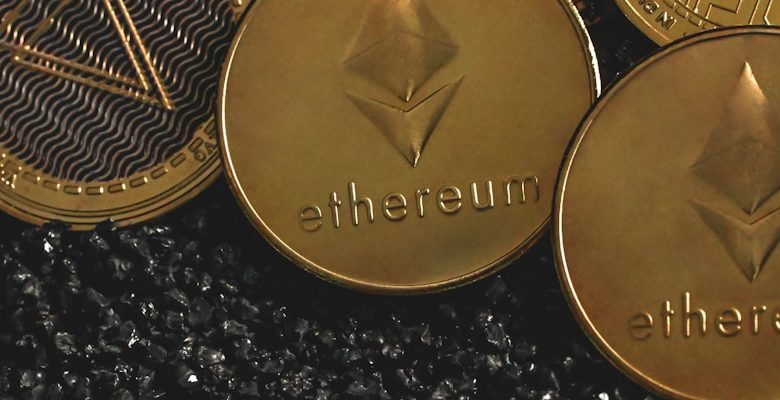The Legal Challenges of Initial Coin Offerings (ICO)

- Understanding Initial Coin Offerings (ICOs)
- Legal Implications of ICOs
- Regulatory Framework for ICOs
- Challenges Faced by ICOs in Compliance
- Investor Protection in ICOs
- Enforcement Actions Against ICO Violations
Understanding Initial Coin Offerings (ICOs)
Initial Coin Offerings (ICOs) have become a popular way for companies to raise funds by issuing digital tokens to investors. Understanding how ICOs work is essential for anyone looking to participate in or regulate this new form of fundraising.
ICOs are similar to initial public offerings (IPOs) in that they allow companies to raise capital from investors. However, unlike IPOs, which involve the issuance of shares in a company, ICOs involve the issuance of digital tokens on a blockchain platform. These tokens can represent a variety of assets, such as equity in a company, access to a product or service, or voting rights within a decentralized organization.
Investors in ICOs typically purchase tokens using cryptocurrencies such as Bitcoin or Ethereum. In return, they receive the newly issued tokens, which may increase in value if the project is successful. However, ICOs are also highly speculative and risky investments, as the value of the tokens can fluctuate significantly based on market demand and the success of the project.
Regulators around the world have raised concerns about the legality of ICOs, as they can be used for fraudulent or illegal activities. Some countries have banned ICOs altogether, while others have implemented regulations to protect investors and prevent abuse. It is crucial for companies and investors involved in ICOs to understand and comply with the legal requirements in their jurisdiction to avoid running afoul of the law.
Legal Implications of ICOs
When considering the legal implications of Initial Coin Offerings (ICOs), it is crucial to understand that regulatory bodies around the world are closely monitoring this fundraising method. ICOs have been a subject of scrutiny due to potential risks such as fraud, money laundering, and market manipulation. As a result, governments are taking steps to establish guidelines and regulations to protect investors and prevent illicit activities.
One of the main concerns regarding ICOs is the lack of regulatory oversight, which can make them vulnerable to abuse. Without proper regulations in place, investors may fall victim to scams or fraudulent schemes. Additionally, the anonymity and decentralization of blockchain technology used in ICOs can make it challenging for authorities to track and prosecute wrongdoers.
Another legal consideration for ICOs is the classification of tokens issued during the offering. Depending on their characteristics, tokens can be classified as securities, commodities, or utility tokens. This classification determines which regulations apply to the ICO and how it should be conducted. Failure to comply with relevant securities laws can result in severe penalties and legal consequences for the organizers.
Furthermore, the jurisdiction in which an ICO is conducted plays a significant role in determining its legal implications. Different countries have varying regulations regarding cryptocurrencies and ICOs, making it essential for organizers to be aware of the legal requirements in each jurisdiction where they plan to offer tokens. Failure to comply with local laws can lead to fines, lawsuits, and even criminal charges.
In conclusion, navigating the legal landscape of ICOs requires a thorough understanding of the regulations in place, as well as a commitment to compliance and transparency. By adhering to the relevant laws and seeking legal advice when necessary, ICO organizers can mitigate risks and ensure a smooth and legally compliant fundraising process.
Regulatory Framework for ICOs
When it comes to the regulatory framework for ICOs, it is essential to understand that different countries have varying approaches. Some jurisdictions have embraced ICOs as a legitimate form of fundraising, while others have imposed strict regulations or even banned them altogether. Here are some key points to consider:
- Many countries are still in the process of developing regulations specifically tailored to ICOs.
- Regulatory bodies are concerned about investor protection, anti-money laundering, and terrorist financing.
- Some countries require ICO issuers to register with the relevant authorities and comply with reporting requirements.
- Securities laws may apply to ICOs, depending on how the tokens are structured and marketed.
It is crucial for ICO issuers to seek legal advice to ensure compliance with the regulatory framework in their jurisdiction. Failure to do so could result in severe consequences, including fines, sanctions, or even criminal charges. As the regulatory landscape continues to evolve, staying informed and proactive is key to navigating the legal challenges of ICOs.
Challenges Faced by ICOs in Compliance
ICO’s face several challenges when it comes to compliance with regulations and laws. These challenges can vary depending on the jurisdiction in which the ICO is being conducted. Some of the common challenges faced by ICO’s in compliance include:
- Uncertainty in regulatory framework: One of the biggest challenges for ICO’s is the lack of clarity in the regulatory framework governing them. This uncertainty can make it difficult for ICO’s to ensure they are complying with all applicable laws and regulations.
- AML and KYC requirements: ICO’s are often subject to anti-money laundering (AML) and know your customer (KYC) requirements. Ensuring compliance with these requirements can be challenging, especially for smaller ICO’s with limited resources.
- Securities regulations: Another challenge for ICO’s is navigating securities regulations. Depending on how an ICO is structured, it may be considered a security and therefore subject to securities laws. Failing to comply with these laws can have serious consequences for an ICO.
- Data protection laws: ICO’s also need to comply with data protection laws, especially if they are collecting personal information from investors. Ensuring compliance with these laws can be complex, particularly with the introduction of the GDPR in Europe.
- Jurisdictional issues: ICO’s that operate in multiple jurisdictions need to navigate the differing regulatory requirements of each jurisdiction. This can be challenging and may require legal advice to ensure compliance.
In conclusion, compliance is a major challenge for ICO’s, and failure to comply with regulations can have serious consequences. It is essential for ICO’s to carefully consider the legal implications of their offering and seek legal advice to ensure they are operating within the bounds of the law.
Investor Protection in ICOs
Investor protection in ICOs is a crucial concern given the high risks involved in these fundraising mechanisms. Due to the decentralized and unregulated nature of ICOs, investors are often left vulnerable to scams, fraud, and market manipulation. To address these challenges, regulatory bodies around the world have started to implement measures to safeguard investors and promote transparency in the ICO space.
One of the key ways to protect investors in ICOs is through proper due diligence. Potential investors should thoroughly research the project, team, and whitepaper before committing any funds. Additionally, investors should be wary of projects that promise unrealistic returns or use aggressive marketing tactics to lure in unsuspecting individuals.
Regulatory authorities have also taken steps to crack down on fraudulent ICOs and hold accountable those who engage in illegal activities. By imposing penalties and sanctions on bad actors, regulators aim to deter fraudulent behavior and protect investors from financial harm.
Furthermore, some jurisdictions have introduced licensing requirements for ICOs, requiring projects to meet certain criteria before launching their token sales. These requirements may include disclosing relevant information to investors, conducting proper KYC/AML checks, and adhering to specific reporting standards.
Overall, while ICOs present exciting opportunities for fundraising and investment, it is essential for investors to exercise caution and conduct thorough research before participating in any token sale. By staying informed and vigilant, investors can help protect themselves from potential scams and fraudulent schemes in the increasingly complex world of ICOs.
Enforcement Actions Against ICO Violations
Enforcement actions against ICO violations are becoming increasingly common as regulatory bodies crack down on non-compliant token offerings. These actions typically involve penalties, fines, and even criminal charges against individuals or entities found to be in violation of securities laws.
Regulators such as the Securities and Exchange Commission (SEC) in the United States have taken a proactive approach to enforcing compliance with securities regulations. They have issued cease-and-desist orders, imposed fines, and even pursued criminal charges against ICO issuers who fail to adhere to the law.
In some cases, enforcement actions have resulted in the shutdown of ICO projects and the return of funds to investors. This can have serious consequences for both the individuals involved in the ICO as well as for the reputation of the cryptocurrency industry as a whole.
It is essential for ICO issuers to be aware of the legal requirements surrounding token offerings and to ensure compliance with securities laws. By conducting thorough due diligence and seeking legal advice, issuers can minimize the risk of enforcement actions and protect themselves from potential legal consequences.



